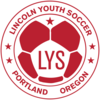|
⇤ ← Revision 1 as of 2019-08-20 05:14:58
Size: 1618
Comment:
|
← Revision 2 as of 2019-08-26 05:08:36 ⇥
Size: 44
Comment:
|
| Deletions are marked like this. | Additions are marked like this. |
| Line 1: | Line 1: |
| As a coach, it's easy to get too attached to the outcome of the game, and seek to help your players avoid mistakes from the sideline. Mistakes are the most important experience in the learning process. When we are overly controlling from the sidelines, it is counterproductive because: | [[joystick coaching]] |
| Line 3: | Line 3: |
| * It's confusing for players, who are already stressed out trying to understand what to do * It slows the learning process, because you need to be scored on to understand what doesn't work and why. * It squashes the creativity that helps players come up with new tricks and enjoy the game Instead of striving to optimize the score of the game, it is better to maximize the learning experience for the players at each game. Some things you can do: * Talk to the players on the bench instead of the players on the field. Whenever there is a mistake, goal, unmarked attacker, or a poorly conceived dribble, ask the players on the bench what happened, and what they see. Help them analyze the game. If there is a penalty kick, give them the tip that the goalie can easily save the kick if he watches the kicker's eyes, and moves early to the side where he will kick. You can't give this tip to the goalie in the game, but the bench players will remember it. * If you have trouble controlling your "enthusiasm" for the game, pick a couple of metrics that you want to improve. Make a chart for each player, and tally the times they do the action. For example, keep track of "completed passes" and "giveaways" for each player. The kids will see you doing this and will try to improve their score on your sheet. |
[[managing subs]] |
